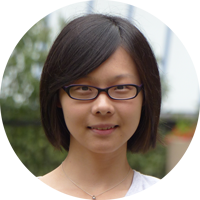About me
How to pronounce my first name: “High-ee”
I am the Daniel P. Siewiorek Associate Professor of Human-Computer Interaction and the Director of HCI Undergraduate Programs at Carnegie Mellon University. I direct the Social AI group at CMU. I lead research projects in human-computer interaction and responsible AI, funded by multiple programs at the National Science Foundation, the National Institute of Mental Health, and various industry sponsors. I have received over ten paper awards at venues such as CHI, CSCW, Human Factors, and CHIWORK, along with the Allen Newell Award for Research Excellence.
About my research
I study Human-AI Interaction, Social Computing, and Responsible AI. My research focuses on the integration of AI technologies and algorithms into various aspects of social groups, communities, and societies to improve, automate, or optimize social processes, interactions, and decision-making. I explore how we can enhance the benefits of these technologies while reducing potential harms. I have conducted several projects that focus on studying the design and use of AI in real-world high-stakes domains such as child welfare, mental health, gig work, and online content moderation.
You can download my CV here. Check out the class I teach: Human AI Interaction (2020-present)
Selected research
AI for Mental Health, Support, and Well-Being
- Social Simulation for Everyday Self-Care: Design Insights from Leveraging VR, AR, and LLMs for Practicing Stress Relief [CHI 2025 Best Paper Honorable Mention🏆]
- What Makes Digital Support Effective? How Therapeutic Skills Affect Clinical Well-Being [ACM Link, CSCW 2024]
- “If This Person is Suicidal, What Do I Do?”: Designing Computational Approaches to Help Online Volunteers Respond to Suicidality [ACM Link, CHI 2024]
- Join, Stay or Go? A Closer Look at Members’ Life Cycles in Online Health Communities [ACM Link, CSCW 2021 Best Paper Honorable Mention🏆]
AI and Work: Innovations and Controversies
- Gig2Gether: Datasharing to Empower, Unify and Demistify Gig Work [Best Paper Honorable Mention at CHI 2025🏆]
- Understanding Frontline Workers’ and Unhoused Individuals’ Perspectives on AI Used in Homeless Services [ACM Link, CHI 2023 Best Paper Award 🏆]
- Designing Individualized Policy and Technology Interventions to Improve Gig Work Conditions [ACM Link, CHIWORK 2023 Best Paper Award 🏆]
- Public Technologies Transforming Work of the Public and the Public Sector [ACM Link, CHIWORK 2024 Best Paper 🏆]
- Improving Human-AI Partnerships in Child Welfare: Understanding Worker Practices, Challenges, and Desires for Algorithmic Decision Support [ACM Link, CHI 2022 Best Paper Honorable Mention🏆]
Generalizable Principles and Methods for Human-AI Interaction
- Factors Influencing Perceived Fairness in Algorithmic Decision-Making: Algorithm Outcomes, Development Procedures, and Individual Differences [ACM Link, CHI 2020].
- Explaining Decision-Making Algorithms through UI: Strategies to Help Non-Expert Stakeholders [ACM Link, CHI 2019].
- Keeping Community in the Loop: Understanding Wikipedia Stakeholder Values for Machine Learning-Based Systems [ACM Link, CHI 2020 Best Paper Honourable Mention🏆].
- Value-Sensitive Algorithm Design: Method, Case Study, and Lessons [ACM Link, CSCW 2018].
Online Communities, Content Moderation, and AI
- Wikibench: Community-Driven Data Curation for AI Evaluation on Wikipedia. [ACM Link, CHI 2024]
- Algorithmic content moderation systems on Wikipedia [ACM Link, FAccT 2022].
- Understanding the effects of emotional cues (e.g., NFL game outcomes) on the contributions of Wikipedia editors. [ACM Link, CSCW’2018]
- Understanding how to organize individual contributors with differing goals, experience, and commitment to achieve a collective outcome [CSCW’2012a],[CSCW’2012b🏆][CHI’2013🏆].
News
April 2025 – Our paper, “Gig2Gether: Datasharing to Empower, Unify and Demistify Gig Work”, received a Best Paper Honorable Mention at CHI 2025.
April 2025 – Our paper, “Social Simulation for Everyday Self-Care: Design Insights from Leveraging VR, AR, and LLMs for Practicing Stress Relief”, received a Best Paper Honorable Mention at CHI 2025.
Nov 2024 – I am very honored to be named to the 2024 Class of Pittsburgh’s 40 Under 40.
July 2024 – Our paper – “Public Technologies Transforming Work of the Public and the Public Sector” [link] – received best paper award at CHIWORK 2024!
July 2023 – Our paper – “Designing Individualized Policy and Technology Interventions to Improve Gig Work Conditions” [link] – received best paper award at CHIWORK 2023!
April 2023 – Our paper – “Understanding Frontline Workers’ and Unhoused Individuals’ Perspectives on AI Used in Homeless Services” [link] – received best paper award at CHI 2023!
2023.02 – Our paper -“A Validity Perspective on Evaluating the Justified Use of Data-driven Decision-making Algorithms”[link] – received best paper award at IEEE Conference on Secure and Trustworthy Machine Learning (SaTML) 2023!
2022.04 – The AP article reported our CHI paper – “How Child Welfare Workers Reduce Racial Disparities in Algorithmic Decisions” [Link]. Some new follow-up [AP 2023.01].
2022.04 – Three papers accepted by CHI 2022. Please check out our Honorable Mention paper “Improving Human-AI Partnerships in Child Welfare: Understanding Worker Practices, Challenges, and Desires for Algorithmic Decision Support” [Link].
2022.06 – Four papers appeared at FAccT 2022. These papers explored a wide range of topics related to fair and responsible AI, including imagining new futures beyond predictive systems in child welfare [link], designing model card authoring toolkit [link], exploring how practitioners (try to) use fairness toolkits [link], and studying algorithmic content moderation systems [link].
2021.10 – Our paper “Join, Stay or Go? A Closer Look at Members’ Life Cycles in Online Health Communities” has been awarded an Honorable Mention at CSCW 2021 [link]
2020.8 – Our 2 million, 3-year NSF award on “Empowering and Enhancing Workers Through Building A Community-Centered Gig Economy” has been funded [Award Abstract]!
